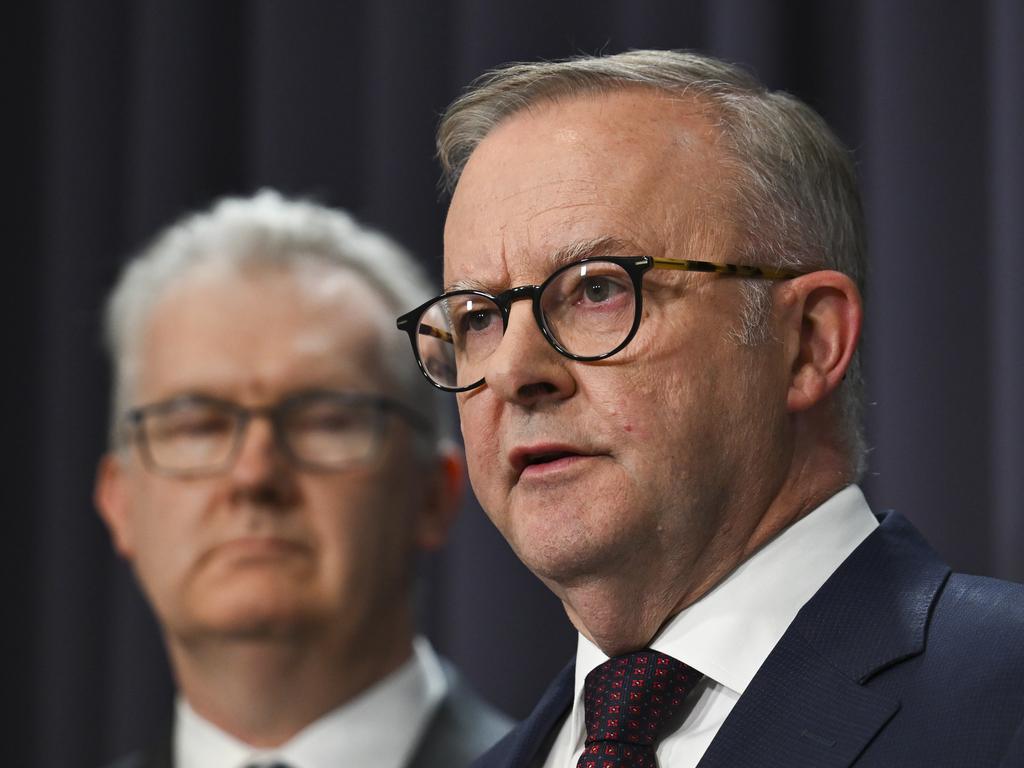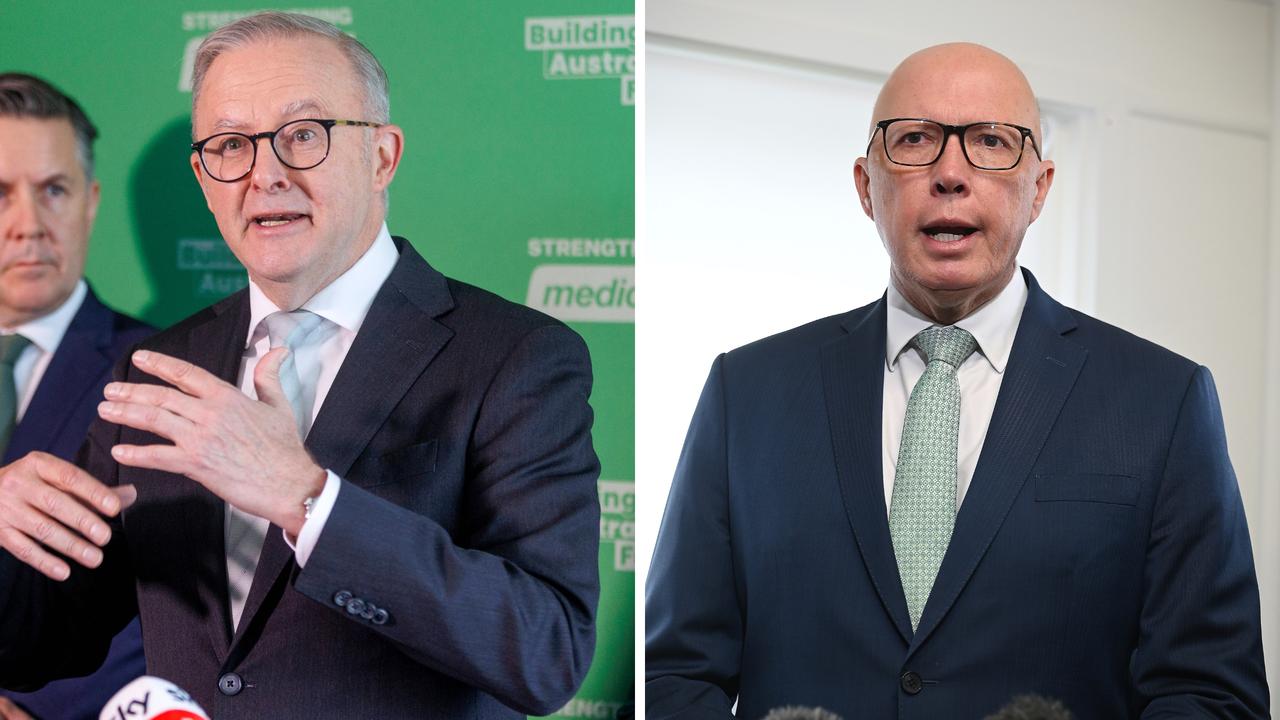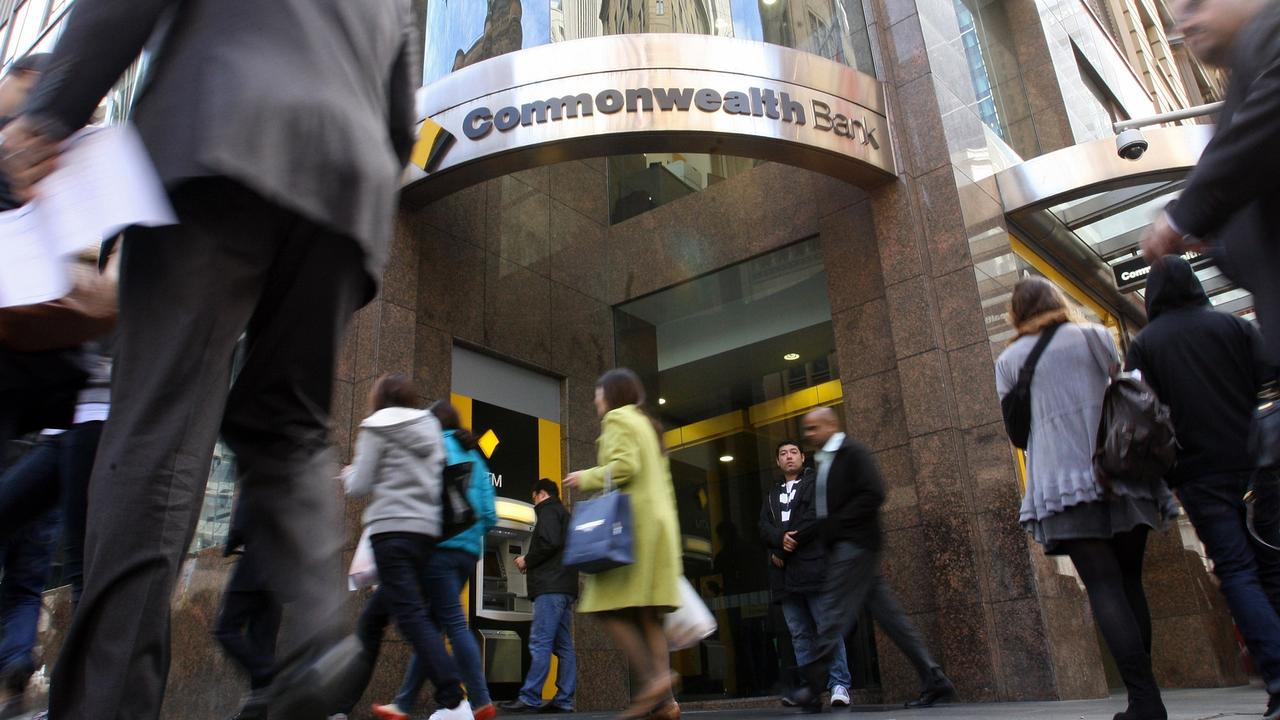Burke’s citizenship blitz betrays a government in election panic
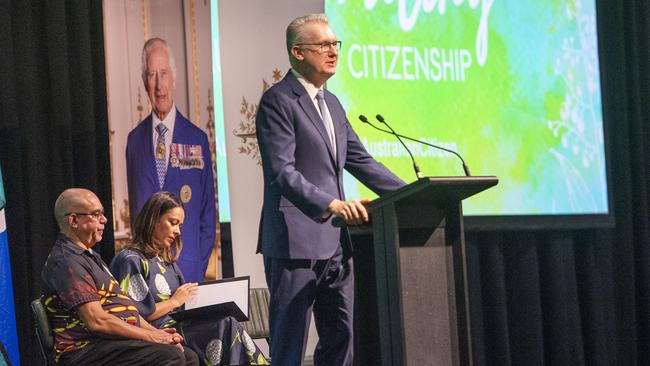
Few government ministers would give up their weekend to clear an administrative backlog at any point of the election cycle, let alone on the eve of a campaign.
Which is why we must conclude that Immigration Minister Tony Burke’s explanation last Friday for unprecedented mass citizenship ceremonies in western Sydney is tosh. Burke was not there to reduce an alleged waiting list of 50,000 would-be citizens. He was there to stack the electoral roll with thousands of people he thinks will vote Labor.
If Burke has a late-onset passion for clearing backlogs, he and Attorney-General Mark Dreyfus might turn their minds to the 35,000 people appealing visa refusals at the Administrative Review Tribunal. Two-thirds of these are students who have overstayed their welcome.
The average processing time for visa review is almost a year. The processing time for citizenship ceremonies is less than three months.
Ministerial behaviour as sordid as this betrays the panic in Labor ranks. Panicky governments make tactical mistakes.
The last thing Burke should be doing right now is drawing attention to immigration. None of the 1.4 million migrants who arrived between July 2022 and June 2024 is eligible to become a citizen but most of them will one day.
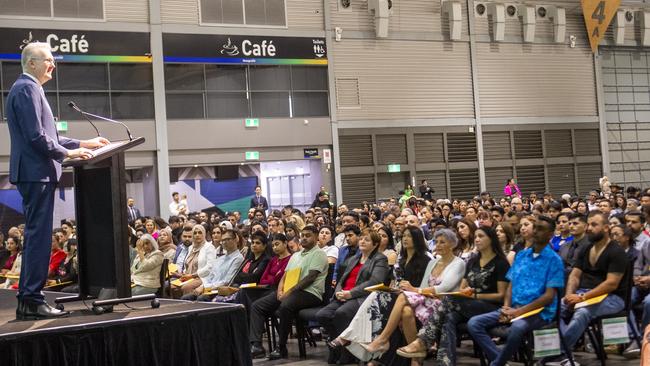
Images of Burke presiding over an industrial-scale citizenship ceremony in the style of Unification Church founder Sun Myung Moon conducting mass weddings is further evidence the government is out of touch with voters in the heartland where nothing matters more than the cost of living.
A government prepared to trade citizenship for votes forfeits any right to criticise the Coalition for targeting grants at marginal electorates. Former Coalition sports minister Bridget McKenzie was hammered for what Labor dubbed the sports rorts affair. The average size of grants was $147,901.
The prize of citizenship, however, is priceless in the eyes of millions of Australians who queued up to enter the country legally, worked hard and obeyed the law in the hope of one day gaining the security, stability and sense of belonging that comes with citizenship.
A minister who appears to be treating certificates like real-estate brochures in a box labelled “Please take one” is committing profanity in the eyes of patriotic, socially conservative blue-collar voters who were once rusted on to Labor but have been steadily rusting off for the past 30 years.
Once they would have been the core constituents in a seat such as Watson, which Burke has occupied since 2004. Today it is a multicultural enclave demographically poles apart from most of the rest of Australia.
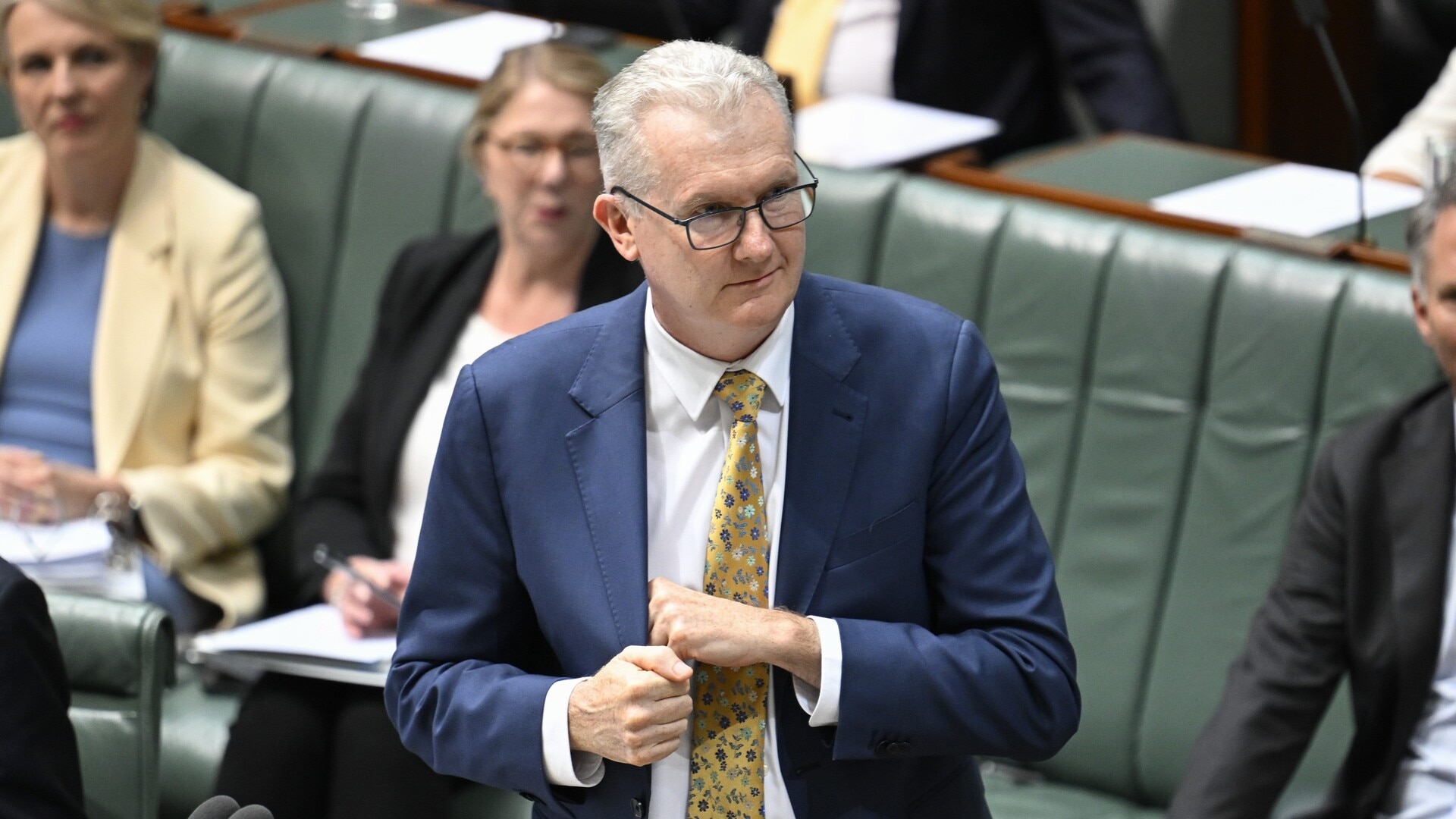
More than half the population (55 per cent) was born overseas. Only 12 per cent had two Australian-born parents, compared with 13 per cent who had Chinese-born parents and 14 per cent whose parents came from Lebanon.
A quarter of Burke’s constituents are Muslim. Fewer than half (49 per cent) are in the workforce compared with 61 per cent across the country. The unemployment rate at the time of the 2021 census was 7 per cent compared with a national rate of 5.1 per cent.
This helps to explain why the first item that appears on Burke’s electoral website when one clicks on “How can we help?” is about Centrelink. The second item invites constituents to contact Burke’s office if they need help with immigration, passports, citizenship, visas or travel documents.
No help is offered for small businesses or families who are doing it tough.
It provides a small clue to Burke’s politically inept citizenship stunt. Burke is a career politician whose world view is distorted by the world he inhabits: a multicultural, statist dystopia in which branches are stacked, civil institutions are commandeered for base political ends and government is the answer to everything.
Burke wasn’t in parliament in 1999 when Michael Thompson wrote Labor without Class: The Gentrification of the ALP. Yet Thompson, as he explained why so many working-class voters abandoned Labor and voted for John Howard in 1996, might have been writing about him.
Thompson concluded that Labor had been captured by a university-educated professional elite that was consciously rebranding Labor as the party of the activist middle class, appealing to a rainbow coalition of special interest groups. Thompson’s book was endorsed by Martin Ferguson, a former ACTU leader, who represented the Victorian seat of Batman for Labor for 17 years.
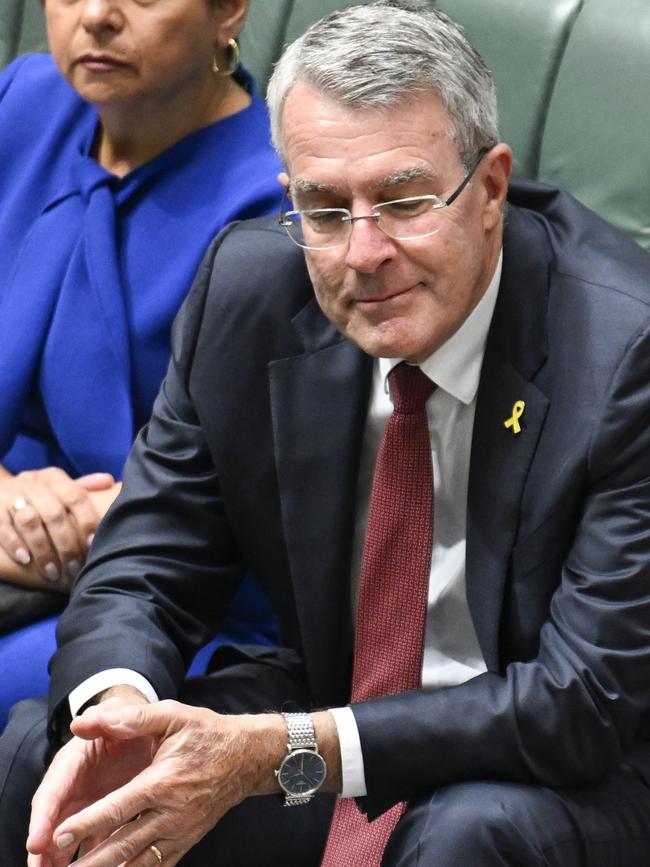
In a frank foreword, he criticises the “middle-class tertiary educated ‘femocrats’ (who) speak only to and for their peers” and special interest groups “skilled at cloaking their self-interest in the language of compassion, and whose moral outrage is often levelled at fundamental working-class values such as hard work, independence and the traditional family.” Ferguson’s views were once mainstream in Labor. Today, it is hard to identify a single senior figure on the Labor side who sees the world as Ferguson did.
The retirement of Bill Shorten left the party entirely in the hands of people such as Burke and Anthony Albanese, political careerists with no higher aim than being in government. The attitude and instincts are as far removed from the working class as it is possible to imagine.
Peter Dutton will make further incursions beyond the red wall in this year’s election. The seats most at risk are not those such as Watson but the white-flight suburban outer ring where white, socially conservative blue-collar voters are in the majority. They include seats such as Whitlam in the Illawarra, where 78 per cent of the population were born in Australia and two-thirds of those born overseas have lived here for at least 25 years. The unemployment rate in 2021 was 4.2 per cent, considerably below the national rate.
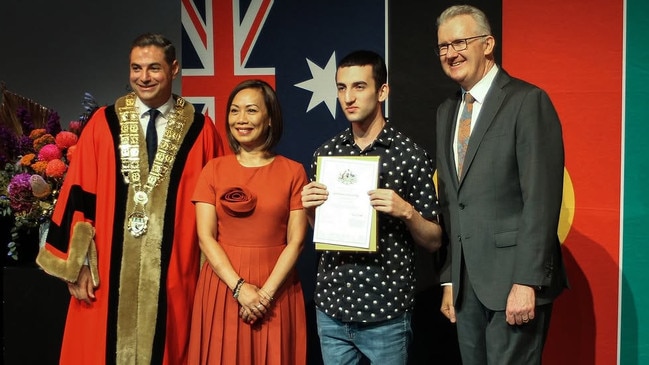
If inflation and energy prices don’t drive these people to the Coalition this year, then immigration probably will. They would have watched agog as Burke powered up the multicultural production line.
To secure a paltry number of extra votes in Watson, Burke has accelerated the mass defection away from Labor in NSW and Victoria. Worse, his actions have further undermined public support for multiculturalism. High immigration numbers under Labor, the pressure on house prices and the changing character of our cities had boosted the ranks of multiculturalism’s discontents even before the Jewish community became the target of sectarian intimidation and violence.
Gough Whitlam’s immigration minister, Al Grassby, was the inventor of multiculturalism in Labor mythology, if not in fact. Burke will be the minister who presided over its end.
The message from the heartland is abundantly clear. Australians not only want to decide who comes to this country but the cultures from which they come.
Nick Cater is a senior fellow at the Menzies Research Centre.

